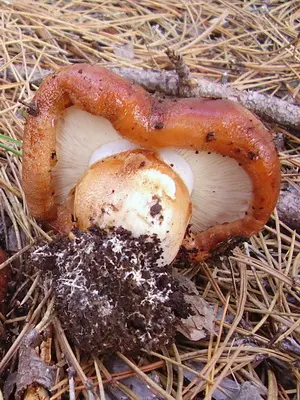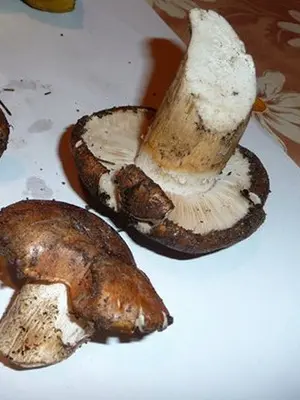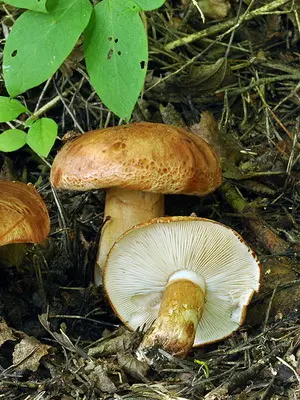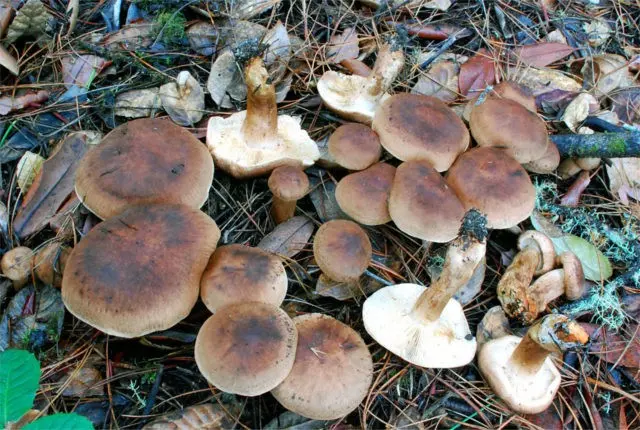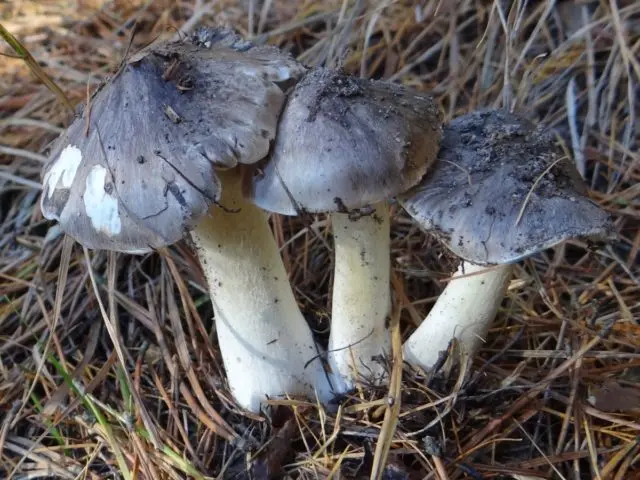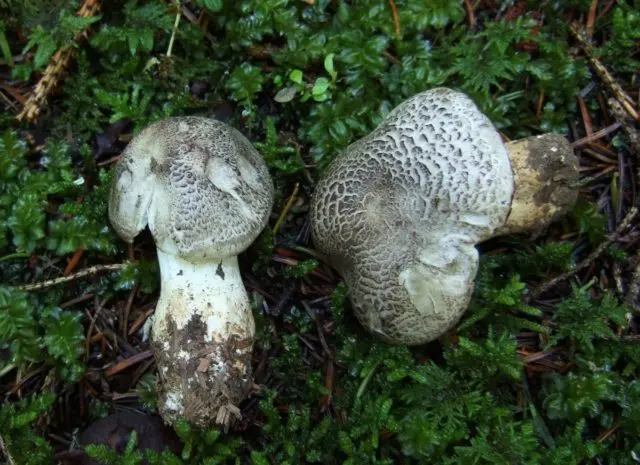Contents
The broken row is a edible mushroom that can be harvested even in winter. Late maturation is a feature of the species. The main thing is to properly prepare the collected mushrooms, knowing their characteristic features.
Where broken rows grow
Row broken (or Tricholoma batschii, mustard) grows mainly in pine forests, which are characterized by high soil fertility. A favorite place are areas covered with moss and pine needles. Most often, mushrooms grow in families, and the harvest can be observed from mid-autumn to February-March.
What do broken rows look like?
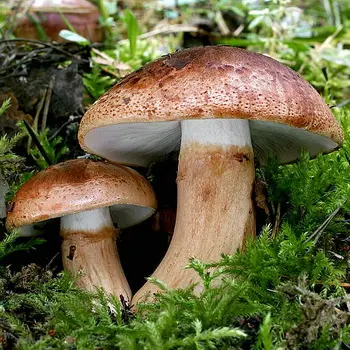
The broken row, with a photo and description of which can be found below, belongs to agaric mushrooms. The appearance of the fruit body is quite appetizing, while the row is extremely fleshy and fragrant.
In order not to confuse bitterness with other species, it is worth taking a closer look at its description:
- Hat. In young specimens, it is semicircular, with time it becomes convex-prostrate. In diameter, it can reach 15 cm, its color is uneven. The color of the upper part of the fruiting body may have a chestnut-red, brown-red or yellow-red tint. The surface of the cap is silky fibrous and polished. Almost always there is a small dent in the central part, and cracked bumps can be observed along the edges.
- Leg. Its diameter reaches 3 cm, the length can be in the range of 5 – 13 cm. The leg is thick and dense, has a cylindrical shape, with a narrowing at the base. The color above the cap ring is white. On the surface of the lower part of the fruiting body there is a flaky coating. The leg has a dense pulp of rich white color, when broken, it turns red and emits a powdery smell.
Is it possible to eat broken rows
Broken rowing belongs to the category of edible mushrooms with high taste qualities. But before cooking, it needs to be soaked for a fairly long period.
Taste qualities of the mushroom ryadovka broken
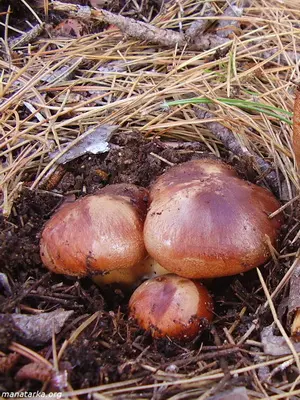
Despite the fact that bitterness is present in broken bitterness, it is extremely tasty. The main condition is to properly soak and cook the fruiting bodies. Especially good taste qualities are revealed in a salty and pickled product.
Benefits and harm to the body
Like many other mushroom varieties, broken mustard has a number of useful properties. Of these, we can distinguish:
- Improved digestion. Fiber, contained in the fruiting bodies, allows you to improve the functioning of the digestive tract, removes toxins from the body.
- The content of vitamin B. In the broken row there are a lot of vitamins, of which group B occupies the main place.
- Used to make antibiotics. Extracts from broken rows are used in pharmacology for the production of drugs against tuberculosis.
There is also a list of factors that negatively affect the state of the body:
- Individual intolerance.
- Diseases of the stomach (gastritis and ulcers). Rows are heavy food, overeating which can cause problems with the gastrointestinal tract.
In general, this type of mushroom has more advantages than disadvantages. Given that a fresh crop can be harvested in late autumn, and the vitamins contained in it are preserved under the influence of high temperatures, rowing is a valuable species.
False doubles
The variety also has false counterparts that can be dangerous to humans:
- white line. It has a pungent taste and an unpleasant odor. This representative has a convex rounded hat, which becomes flat as the mushroom grows, its color is light gray, changing to yellow-brown. The lower part of the fruiting body is colored in the color of the cap. The first white rows can be found in early August. The species is inedible.

- smelly row. An inedible species that causes hallucinations. The upper part of the fruiting body is whitish, the flesh is light, dense, and has a pungent odor resembling gas. This species has been found in various forests since early September. The last representatives can be found at the end of October.

- Soap trichome. This mushroom has a soapy aroma with a slight admixture of fruit. His hat is naked, smooth, conical, but over time not only changes color to olive, but also becomes flat. The leg has the shape of an even mace, its color is greenish-yellow. As the mushroom grows, it becomes covered with red small spots. The first fruiting bodies can be observed in August. The variety is unsuitable for human consumption.

- Spotted row, or ruined. Its fruiting body has a convex cap and a dense short leg. Poisonous look.

- pointed. The variety has a cone-shaped cap, which becomes flat over time, and a tubercle forms in the center. A thin and rather long stem expands closer to the base. Color – white with pink or yellow patches. The mushroom has no smell, but has a sharp taste. This species is classified as poisonous.

- Tiger Row. Its fruiting body has a scaly, spherical gray hat. The lower part of the fungus is straight, covered with an ocher bloom. The pulp has a mealy smell, it is not eaten due to its poisonous properties.

All false twins are inedible. Some of them are poisonous and extremely dangerous. Some species can cause hallucinogenic visions, which can also threaten health and life. Therefore, the use of such mushrooms in any form is prohibited.
Collection rules
Like all mushrooms, the broken row, or mustard, usually grows in coniferous forests. Therefore, there are no special rules for collecting this species. Its fruit body is usually clean, rarely wormy. The only recommendation is not to fold broken bitterness together with other species.
In addition, you should not collect the variety in places close to industrial complexes, highways and landfills. Silent hunting in abandoned mines is also not worth it, since substances harmful to health and life remain in the ground for several centuries.
How to cook broken rows
With a row house, you can find many delicious recipes. It is used in almost any form. Gorchak is marinated, stewed, boiled, fried and salted. At the same time, a delicate aroma emanates from the dish.
The only treatment that this variety does not lend itself to is drying.
Conclusion
The broken row is a tasty and healthy mushroom, which you can enjoy even in winter. The largest harvest can be observed in late January – early February, although in some regions the active harvest begins as early as October and continues until the first spring months. At the same time, neither precipitation nor low air temperature will interfere with “silent hunting”.










